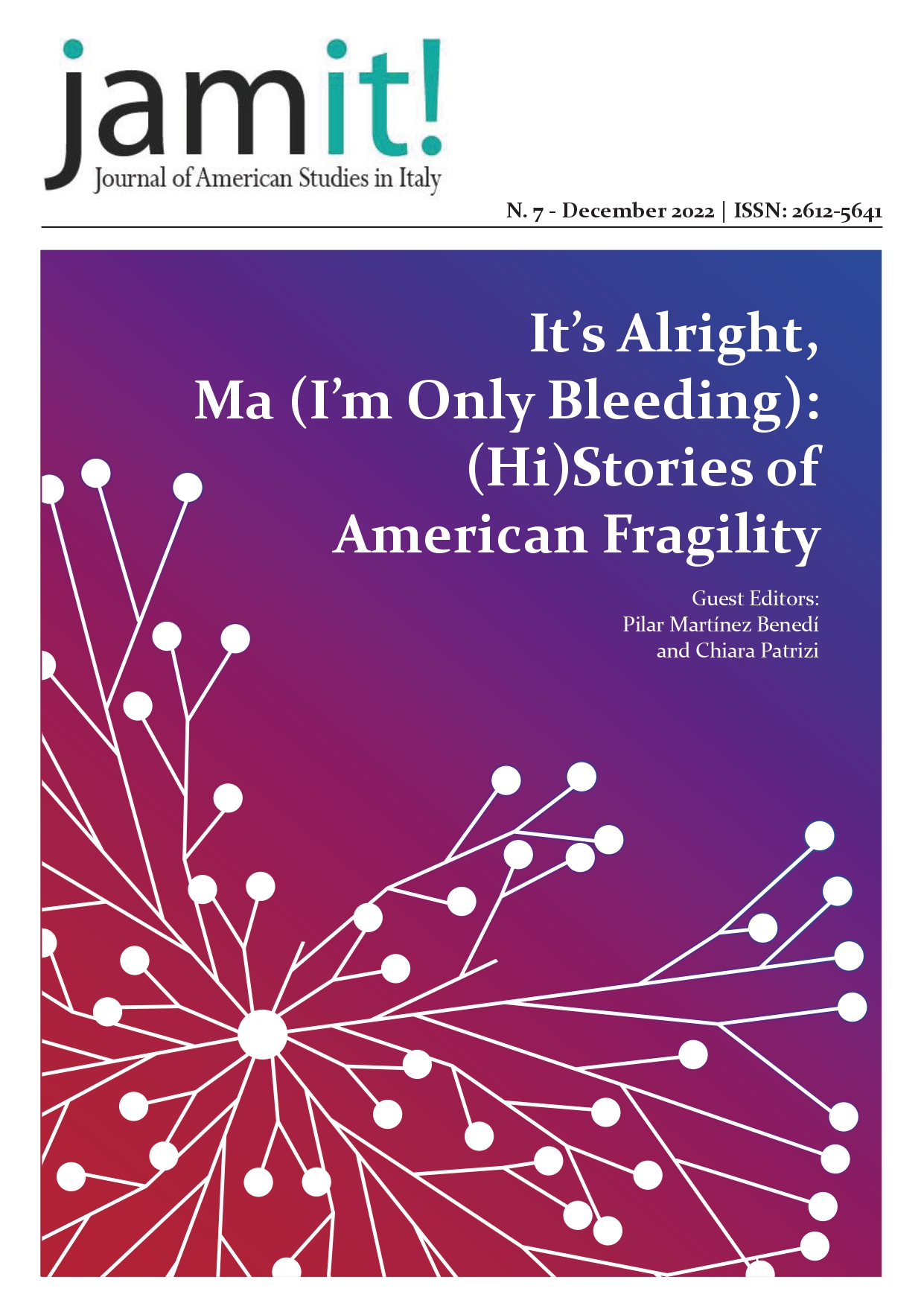Reclaiming Wounds
Personal Narratives and Collective Memory in Norma Elía Cantú's Autobiographical Writing
DOI:
https://doi.org/10.13135/2612-5641/6702Palabras clave:
Borders, Autobiography, Mestiza, Women Writers, Norma E. CantúResumen
In her writing, Norma E. Cantú problematizes the dimensions of the autobiographical genre by way of placing it at the border between two nations. Border life-writing is constructed as collective, creative, and above all wounded by the colonial and Western experience. Far from exhibiting rage or mere nostalgia, Cantú claims for memory and historical inscription as the means to empower otherwise forgotten and colonized bodies and subjectivities. In so doing, she sets out new modalities of self-representation that aim at re-membering the racialized and gendered bodies at one and other side of the border. Through a display of border crossings and historical recollections, Cantú ultimately exhorts readers to delve into the border wound as though it were a threshold into a particular subjectivity. In analyzing three of her works, Canícula: Snapshots of a Girlhood en la Frontera (2015), Cabañuelas, A Novel (2019), and Meditación Fronteriza: Poems of Love, Life, and Labor (2019), this essay seeks to establish bounds between Cantú’s autobiographical writing and feminist theories of mestizaje (Anzaldúa, 2012), performative self-representation and autobiographics (Gilmore, 1994), nomadism and mobile diversity (Braidotti, 2011), and third spaces (Bhabha, 1994), that will problematize and push the autobiographical genre to its very limits.
Descargas
Publicado
Número
Sección
Licencia
Authors who publish with this journal agree to the following terms:
- Authors retain the copyright and full publishing rights for their submissions to the journal.
- Authors grant the journal right of first publication with the work simultaneously licensed under a Creative Commons Attribution-NonCommercial-NoDerivatives 4.0 International License that allows others to share unedited work for non-commercial purposes with an acknowledgement of the work's authorship and initial publication in this journal.
- Authors are able to enter into separate, additional contractual arrangements for the non-exclusive distribution of the journal's published version of the work (e.g., post it to an institutional repository or publish it in a book), with an acknowledgement of its initial publication in this journal.
- Authors are permitted and encouraged to post their work online (e.g., in institutional repositories or on their website) prior to and during the submission process, as it can lead to productive exchanges, as well as earlier and greater citation of published work (See The Effect of Open Access).




